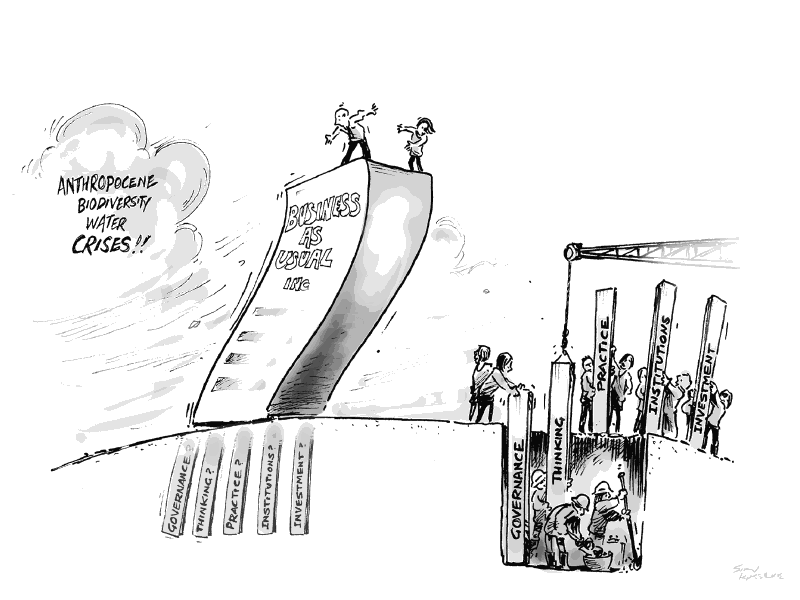I saw a tweet recently that said something like “you know when someone says paradigm shift that it is going to be a long meeting”. No idea how long this blog will be – wanted to pull a few strands of thought together.
The thoughts were prompted by a friend of mine pointing me in the direction of a great on-line essay by Charles Eisenstein – called 2013: The Space between Stories. It really cleverly describes something I’ve experienced both as a ‘citizen’ and also in my ‘work’. I highly recommend that readers follow the link above now to get a sense of Eisenstein’s essay that starts:
Every culture has a Story of the People to give meaning to the world. Part conscious and part unconscious, it consists of a matrix of agreements, narratives, and symbols that tell us why we are here, where we are headed, what is important, and even what is real. I think we are entering a new phase in the dissolution of our Story of the People, and therefore, with some lag time, of the edifice of civilization built on top of it.
In fact if you’ve only got a few minutes, read that blog not this one!
The words ‘edifice of civilisation built on top of it’ reminded me of this picture used by Ray Ison in a presentation he did
Ray was emphasising the fact that our current governance, thinking, practice, institutions and investment were no longer appropriate to the situation we find ourselves in. There seem to be synergies there with Eisenstein’s ‘matrix of agreements, narratives and symbols’.
I’m also reminded of Schön’s (1973) discussion of social learning and ‘ideas in good currency’ (see a previous blog). He says:
ideas operate at different levels. At the most fundamental level, every social system has root concepts which underlie all theory making. These are in the nature of metaphors like mechanism, technique and progress which in the last hundred years have cut across most sectors and subcultures of society. As new root concepts move into good currency their influence on the larger social system is enormous, since they influence not only a particular public policy, practice or situation, but the entire range of activities and practices of the system as a whole. These root concepts are like the largest overriding waves of change. (page 14)
So I’ve heard and used the expression paradigm shift over the years, but sometimes you don’t really stop to think how fundamental it is and how much it is about re-defining who we are, what we are about to getting a new ‘purpose’ for us as humankind. It is social change of the most significant kind – and something that is likely to be emergent and visible in retrospect rather than envisaged in advance.
But what Eisenstein has particularly reminded me to focus on is the ‘void’ or uncertainty that exists through the transition. You know the ‘old’ way is wrong, you want to re-invent, you want to start out on a journey of change but you have no idea what the future looks like when you’ll get there – it is truly stepping into the unknown – and it is really hard letting go of the existing safe stuff. And the difficulty we have with this particular paradigm transition is the old world we are leaving – the one we are comfortable with – has taught us to pre-define and plan and know where you are going to, we’ve learnt to feel safe through a (false) sense of certainty. We’re in this vicious circle where we have to change our paradigm to change our paradigm! As Eisenstein concludes:
How can we prepare? We cannot prepare. But we are being prepared
We’re going to have to let go, go with the flow, go with the magical mystery tour…and see what we learn along the way. Where did I see someone say ‘change happens one conversation at a time’ – that expression seems to be coming into my head a lot at the moment.
References
Schön, D.A. (1973) Beyond the stable state pp.30, 116 – 179. The Norton Library, W.W. Norton and Company INC, New York reprinted as Chapter 1 in Blackmore, C. (Ed) (2010) Social learning systems and communities of practice, The Open University/Springer, Milton Keynes/London


